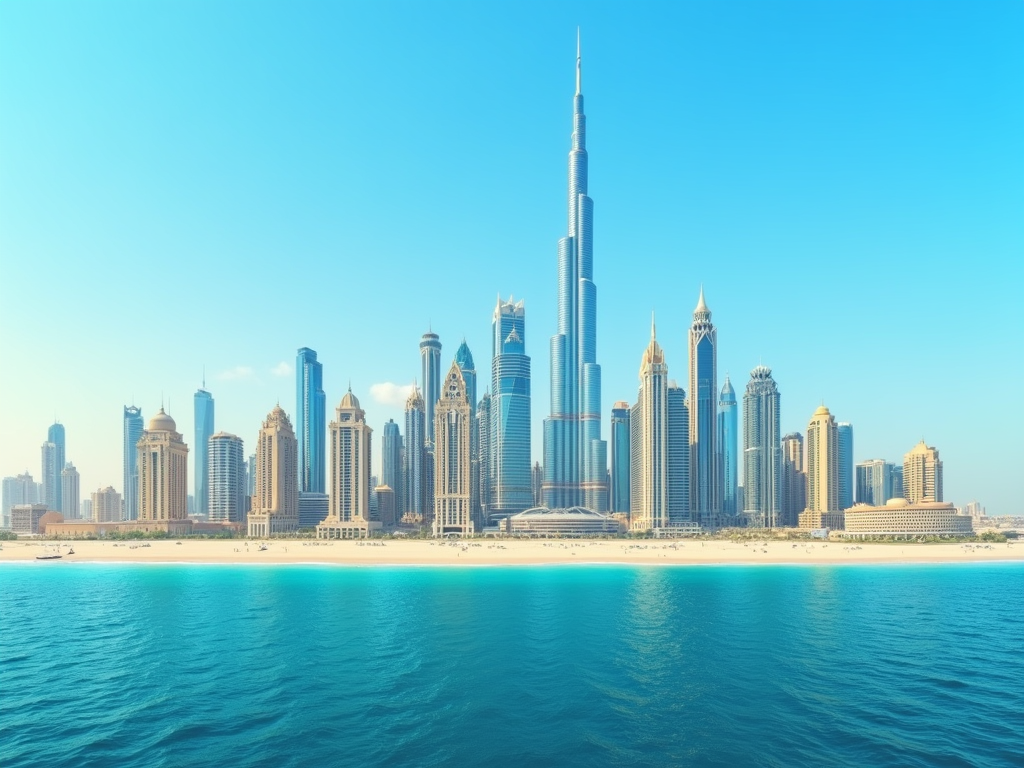Dubai is swiftly emerging as a significant hub for global marketing and advertising, thanks to its strategic location, diverse culture, and proactive government policies. The city is positioning itself as a hotbed for innovative marketing practices by attracting top talent and leveraging cutting-edge technology. With a rapidly growing consumer base and an influx of international brands, it has become essential for marketers and advertisers to understand the unique landscape that Dubai presents. Companies are not only setting up local offices but also investing in digital strategies to connect with audiences in the region. This article will explore the factors contributing to Dubai’s rise in the global marketing and advertising arena.
The Strategic Location Advantage

Dubai’s geographical location serves as a gateway between the East and the West, making it an ideal base for businesses looking to expand into new markets. The emirate offers easy access to Africa, Europe, and Asia, positioning itself as a prime hub for trade and commerce. As international brands seek to tap into the Middle Eastern consumer market, Dubai’s convenient connectivity is increasingly appealing. Furthermore, the presence of world-class logistics and transportation facilities enhances its attractiveness for both local and global companies. Some notable features of this strategic location include:
- Proximity to emerging markets in the Middle East and North Africa (MENA)
- Accessible air and sea routes to major global cities
- Robust digital infrastructure supporting e-commerce
Investments in Technological Innovation

Technological advancements are reshaping the way marketing and advertising are executed in Dubai. The city is embracing innovations in data analytics, artificial intelligence, and digital marketing tools that enhance customer engagement and campaign effectiveness. Many companies are investing in smart technologies that facilitate personalized marketing strategies, thereby improving the customer experience. Moreover, the government has introduced various incentives for tech startups, fostering a vibrant digital ecosystem. Key innovations driving this transformation include:
- Big Data Analytics: This allows marketers to derive actionable insights from consumer behavior.
- AI-Powered Advertising: Algorithms that optimize ad placements and personalize content.
- Augmented and Virtual Reality: Tools for immersive brand experiences that resonate with consumers.
A Diverse and Multi-Cultural Population
The multicultural fabric of Dubai contributes greatly to its marketing and advertising landscape. With over 200 nationalities residing in the city, businesses have the unique opportunity to target a wide array of demographics and consumer preferences. This diversity not only shapes local marketing strategies but also encourages global brands to tailor their messages to resonate authentically with various segments. Advertisers can leverage this diversity in the following ways:
- Creating culturally relevant content that appeals to varying tastes and preferences.
- Utilizing multilingual marketing strategies to engage various communities.
- Organizing inclusive campaigns that celebrate the fusion of cultures.
The Dubai government plays a pivotal role in fostering a conducive environment for marketing and advertising agencies. Numerous initiatives and regulations have been enacted to support this growth, including free zones that allow 100% foreign ownership, streamlined business processes, and tax exemptions. Additionally, Dubai’s participation in global events such as Expo 2020 has attracted significant attention and investment in the marketing sector. These government policies pave the way for creative freedom, innovation, and collaboration among businesses. Some examples of supportive measures include:
- Incentives for Startups: Grants and funding opportunities for new marketing ventures.
- Networking Events: Platforms for collaboration and knowledge sharing.
- Market Research Reports: Data-driven insights to guide marketing strategies.
Conclusion
In conclusion, Dubai is solidifying its position as a global marketing and advertising hub due to its strategic location, technological advancements, diverse population, and supportive government initiatives. As international businesses continue to flock to the city, innovative marketing solutions and unique strategies will be essential for engaging the dynamic consumer base. The future of advertising in Dubai looks promising, driven by creativity, technology, and a multicultural perspective. By understanding the local landscape and embracing the opportunities that arise, marketers can effectively navigate this exciting and rapidly evolving market.
Frequently Asked Questions
1. Why is Dubai considered a hub for global marketing?
Dubai’s strategic geographic location, diverse population, and technological innovations make it an ideal base for companies looking to engage with a wide range of consumers in the MENA region.
2. What role does technology play in Dubai’s marketing landscape?
Technology enables marketers in Dubai to utilize data analytics, artificial intelligence, and innovative tools that enhance customer engagement and improve marketing effectiveness.
3. How diverse is Dubai’s population?
Dubai boasts a multicultural demographic, with over 200 nationalities living in the emirate, providing a rich tapestry of consumer preferences for marketers to tap into.
4. What government initiatives support marketing and advertising in Dubai?
The Dubai government offers attractive incentives such as free zones, tax exemptions, and grants for startups that help foster a thriving marketing ecosystem.
5. What are some challenges marketers face in Dubai?
Marketers in Dubai may face challenges such as cultural sensitivities, competition from global brands, and the need for continuous adaptation to market trends and consumer behavior.
